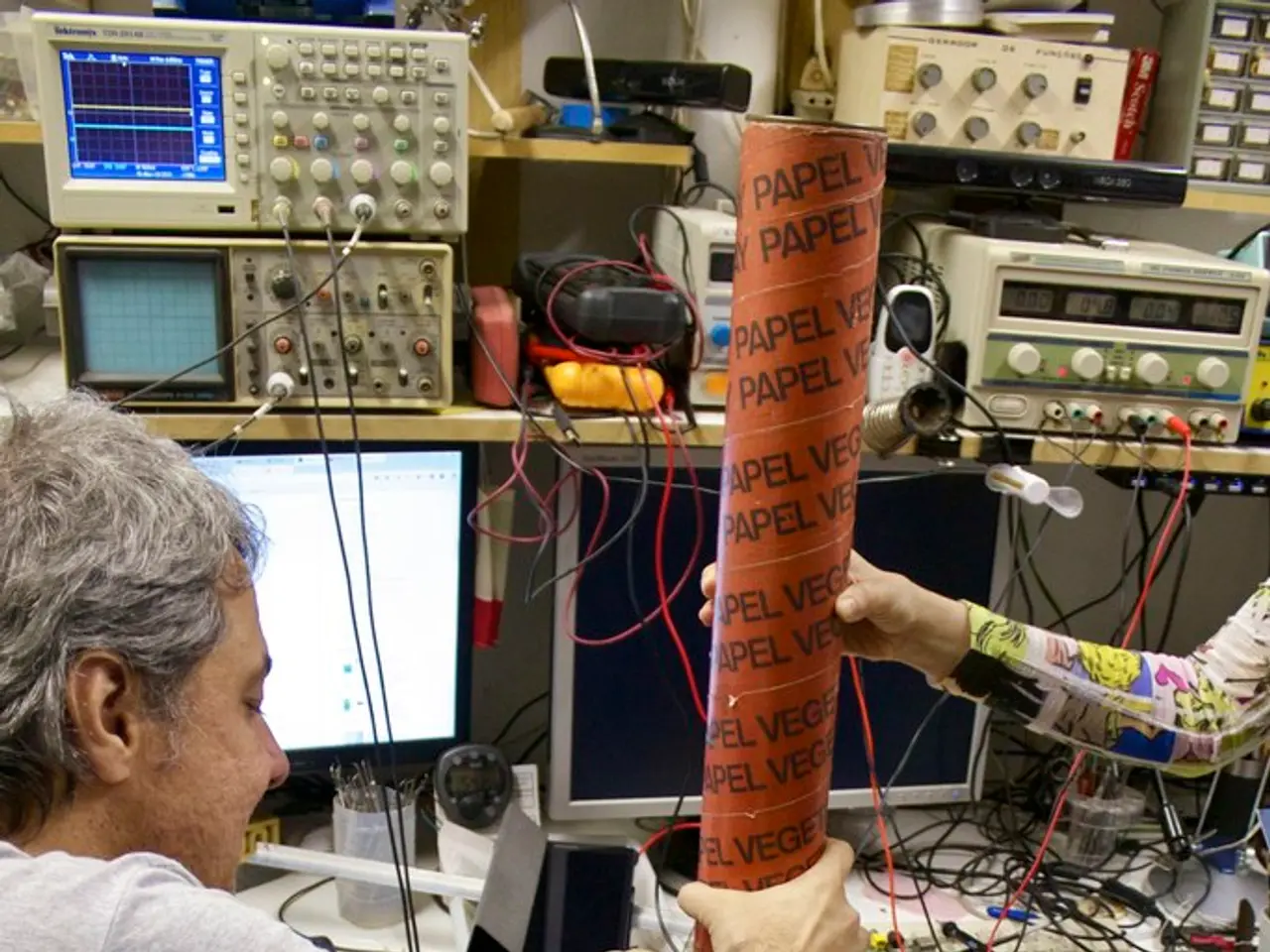Human Trials for Neuralink's Brain-Computer Interface Set for 2026
### Title: Neuralink's Blindsight Vision Implant: A Promising Approach to Restoring Sight
#### Current Developments
Neuralink's Blindsight vision implant, a revolutionary brain-computer interface (BCI) device, is set to change the landscape of vision restoration for the blind. This innovative technology aims to stimulate the visual cortex directly, bypassing traditional visual pathways, and potentially generating visual perceptions without the need for functional sensory organs.
The device, which has been tested successfully in monkeys, is expected to begin human trials in late 2025 or early 2026, with potential locations including the United Arab Emirates in collaboration with the Cleveland Clinic Abu Dhabi.
#### Regulatory Approvals
The Blindsight device has received the FDA's "breakthrough device" designation, indicating growing confidence in its safety and potential. Furthermore, Neuralink has secured approvals for clinical trials in Canada and the UAE.
#### Technical Capabilities
The Blindsight implant uses an array of microelectrodes to stimulate neurons in the visual cortex, with initial visual resolution comparable to a "blurry pixel screen". However, it is expected to improve exponentially over time.
#### Potential Impact
##### Medical Benefits
The Blindsight implant offers a novel approach to restoring vision in individuals with severe visual impairments by bypassing damaged optic nerves, potentially improving their quality of life significantly.
##### Technological Advancements
Beyond its medical applications, the technology behind Blindsight could contribute to broader advancements in brain-machine interfaces, potentially enhancing human cognition and interaction with technology.
##### Ethical and Regulatory Considerations
While Neuralink's progress is promising, ethical debates around data privacy, device security, and the broader implications of such technologies remain crucial. As BCI technology advances, regulatory frameworks must keep pace to ensure safety and ethical use.
In the words of psychology professor Ione Fine, "Engineers tend to think of electrodes as pixels, while biology operates in a much more complex and nonlinear system." This underscores the need for a nuanced and thoughtful approach to the development and implementation of such technologies.
Neuralink has opened international patient registration for the Blindsight vision implant, marking a significant step forward in this groundbreaking research. The roadmap for Neuralink's clinical trials envisions active trials at least until 2031, reflecting the long-term commitment to this transformative technology. Additionally, Neuralink is also developing a clinical trial called UAE-PRIME, focused on restoring motor and speech functions, further expanding its focus beyond restoring mobility to individuals with paralysis.
Elon Musk's ambition with Neuralink is not just medical, but also geopolitical and symbolic. The first Blindsight implant, set to take place in the United Arab Emirates, solidifies the UAE's status as a strategic hub in the neurotechnology map. The goal of the Blindsight implant is to partially restore vision in completely blind individuals, with the long-term aim of enabling "superhuman capabilities" such as infrared sight.
The journey of Neuralink's Blindsight vision implant is just beginning, and its potential impact on the lives of the blind and the future of neurotechnology is immense. As the technology progresses, so too will the ethical and regulatory considerations that come with it. It is a testament to the power of human innovation and the relentless pursuit of a better future.
- The promising approach to restoring sight by Neuralink, the Blindsight vision implant, could pave the way for advancements in health-and-wellness, particularly in the medical management of neurological disorders.
- As the field of science and technology evolves, artificial intelligence, aided by breakthroughs like the Blindsight device, could revolutionize medical-conditions treatment, offering unprecedented potential for enhancing human cognition and interaction with technology.
- In light of Neuralink's progress in developing the Blindsight vision implant and other related technologies, it becomes crucial to address ethical concerns around data privacy, device security, and the broader implications of these innovations to ensure responsible and ethical development and use in the future.




